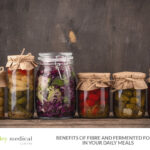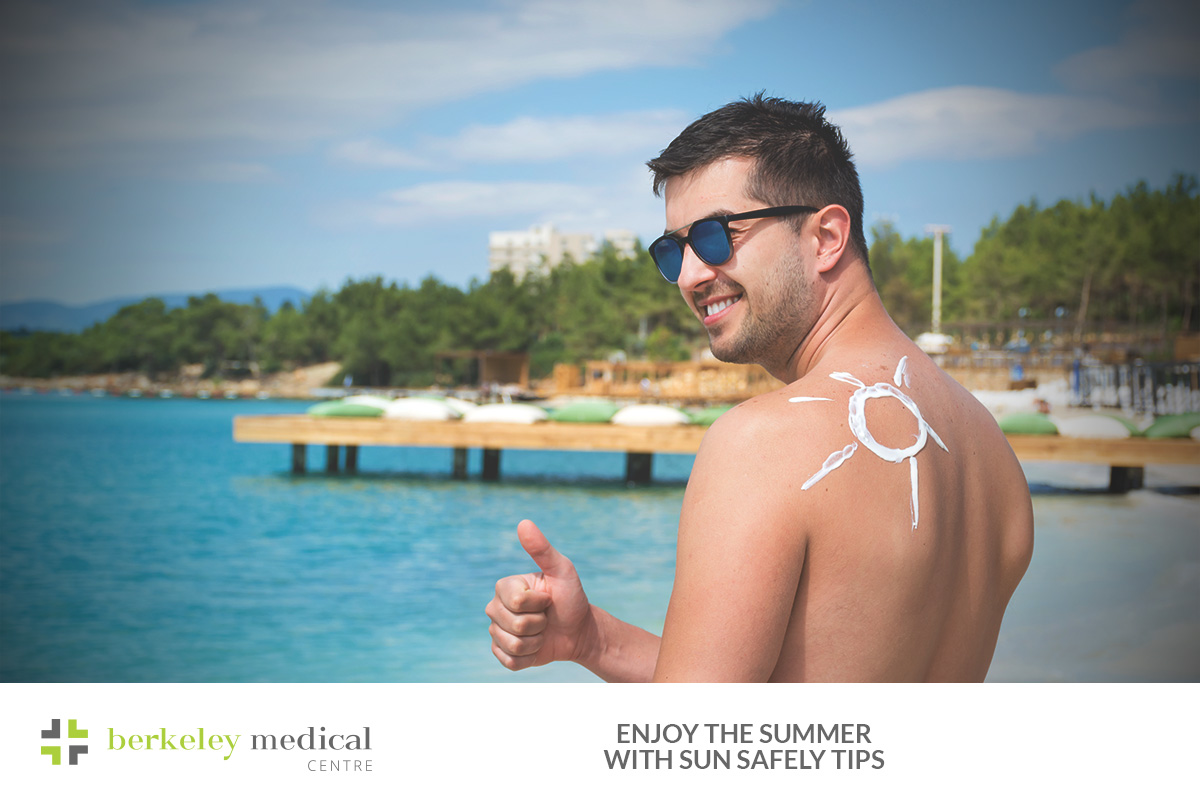With summer bringing long days and warm weather to Australia, it is the perfect time to enjoy outdoor adventures, beach days, and family gatherings. However, the season also presents unique challenges, such as intense sun, high temperatures, and potential health risks. At Berkeley Medical Centre, we are here to help you make the most of your summer by providing essential tips to keep you and your loved ones summer safe and healthy.
Protect Your Skin from the Sun
Australia’s summer sun is particularly intense, and unprotected exposure can lead to sunburn, premature aging, and skin cancer. Skin protection is crucial for everyone, regardless of skin type.
- Use sunscreen consistently: Apply a broad-spectrum sunscreen with SPF 30 or higher and reapply every two hours. Be sure to cover all exposed areas, including the face, neck, and ears, and more frequently if you are swimming or sweating.
- Wear protective clothing: Choose lightweight, long-sleeved shirts, long pants, and wide-brimmed hats to cover skin. Opt for clothing with a UPF rating for added sun protection.
- Seek shade during peak hours: The sun is strongest between 10 a.m. and 4 p.m. If possible, plan outdoor activities for the morning or late afternoon, and take regular breaks in shaded areas to reduce your exposure.
Stay Hydrated
In the summer heat, staying hydrated is essential. Dehydration can quickly lead to fatigue, dizziness, and heat-related illnesses, so make it a priority to keep your body’s fluid levels up.
- Drink plenty of water: Aim for at least 8-10 glasses a day, and increase your intake if you are active or spending extended time outdoors. Carry a refillable water bottle with you to ensure you have access to hydration wherever you go.
- Limit sugary and caffeinated drinks: While tempting, sugary drinks and caffeine can actually contribute to dehydration. Choose water, electrolyte drinks, or herbal teas to stay hydrated without the drawbacks.
- Eat water-rich foods: Include fruits and vegetables like watermelon, cucumbers, and oranges, which not only provide hydration but also essential vitamins to keep you feeling refreshed and energised.
Practise Water Safety
Whether you are at the beach, pool, or lake, water safety is paramount. Drowning incidents increase in summer, making vigilance around water essential.
- Supervise children closely: Always keep a watchful eye on children when they are near water, even if they are good swimmers. Accidents can happen quickly, so staying close by is key.
- Swim in designated areas: Stick to lifeguard-supervised areas at beaches or public pools. Lifeguards provide an extra layer of safety, particularly in open water where conditions can be unpredictable.
- Know your limits: Even if you are a strong swimmer, avoid venturing too far into open water or swimming in rough conditions. Always be aware of currents, tides, and local swimming advisories. Following these precautions ensures a fun and summer safe experience around water.
Protect Against Heat-Related Illnesses
Australian summers are known for high temperatures, which can lead to heat exhaustion or even heatstroke if precautions are not taken.
- Plan outdoor activities wisely: Avoid intense physical activities during the hottest parts of the day. Instead, schedule outdoor fun for early morning or late evening when temperatures are cooler.
- Recognise signs of heat exhaustion: Look out for symptoms like heavy sweating, dizziness, muscle cramps, and nausea. If you or someone around you experiences these signs, move to a shaded or air-conditioned area, sip water, and rest.
- Stay cool indoors: Use fans, air conditioning, or take cool showers to lower body temperature on hot days. Public spaces like shopping centres can also offer a cool environment when needed.
Practise Food Safety
Outdoor meals, picnics, and barbecues are summer staples, but the warm weather also increases the risk of foodborne illnesses.
- Keep perishable foods cool: Store foods like meats, dairy, and salads in a cooler with plenty of ice packs. Avoid leaving perishable items out in the sun for more than two hours.
- Separate raw and cooked foods: Use separate cutting boards and utensils for raw meats and other foods to avoid cross-contamination. Wash hands thoroughly before and after handling raw ingredients.
- Cook meats to safe temperatures: Use a meat thermometer to ensure that meats are cooked through, especially poultry, beef, and seafood, to prevent foodborne bacteria from causing illness.
Protect Yourself from Insects
Insects, especially mosquitoes and ticks, are more active in summer and can carry diseases or cause allergic reactions.
- Use insect repellent: Apply repellent to exposed skin and reapply as needed. Look for products that contain DEET or picaridin for effective protection.
- Wear protective clothing: Long-sleeved shirts, pants, and light-coloured clothing can reduce bites. Avoid strong fragrances, which attract insects, especially bees.
- Avoid stagnant water: Mosquitoes breed in standing water, so empty any outdoor containers that collect water around your home. Avoid spending time near ponds, puddles, or marshy areas where mosquitoes gather.
Eat Light and Fresh Foods
In summer, lighter meals are more comfortable and help you stay energised without feeling sluggish.
- Choose seasonal produce: Summer fruits and vegetables like berries, tomatoes, cucumbers, and leafy greens are packed with vitamins and hydration. These foods support immune health and are easy on digestion.
- Opt for lighter meals: Fresh salads, grilled vegetables, and lean proteins keep you full and energised without the heaviness of richer dishes.
- Limit sugary treats: Sugary foods can cause energy crashes, so focus on balanced meals to maintain steady energy throughout the day.
Exercise Safely Outdoors
Staying active is great for physical and mental health, but the summer heat can make outdoor exercise more challenging.
- Exercise during cooler times: Early morning and late evening are typically cooler, making them ideal times for outdoor activities. Avoid peak heat to prevent overheating.
- Stay hydrated during workouts: Drink water before, during, and after exercise to replenish fluids lost through sweat.
- Listen to your body: Heat adds extra stress to your body during exercise. If you feel dizzy, fatigued, or overheated, take a break and cool down.
Conclusion
Summer is a time to unwind, but staying safe is essential for making the most of the season. By following these health tips—protecting your skin, staying hydrated, practising food and water safety, and avoiding heat risks—you can enjoy all that summer has to offer while keeping yourself and your family summer safe. At Berkeley Medical Centre, we are here to support your health and well-being, so you can embrace a summer filled with relaxation, adventure, and peace of mind.







